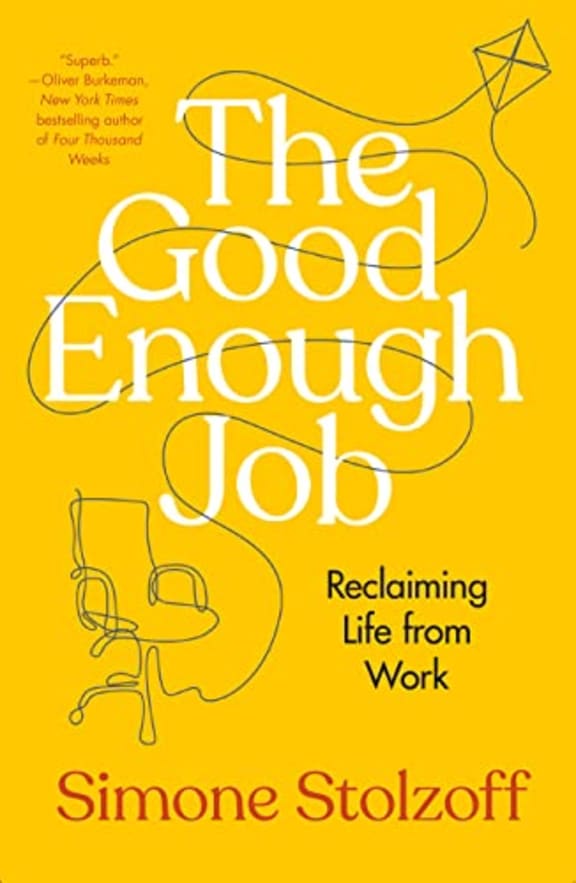Miserable at work? Maybe you're thinking about it all wrong, says journalist Simone Stolzoff.
Rather than letting your work define be your identity, Stolzoff advocates opting for a 'good enough' job that pays the bills but doesn't require working 12 hours a day.
His new book, The Good Enough Job: What We Gain When We Don't Put Work First, points to the insidious rise of “workism” in the last 40 years.

Photo: 123RF
“Treating work akin to a religion, not just something that you look to for a pay cheque, but also for a community a sense of purpose, or reason for being.”
Work becomes the centre of life and everything else is squeezed to the margins, Stolzoff says.
"If you look back to the 1970s, the average American and the average French, and the average German worker all worked roughly the same number of hours.
“And fast forward to today. Now, the average American works about 30 percent more than the average German.”
In the US, work is tied to many facets of a secure life, he says.
“We, for example, tie our healthcare to employment, or if you're an immigrant, your ability to stay in the country is contingent on your job.
“So, part of the reason why our relationship to work is so fraught, is because the consequences of losing work are so dire.”
The Covid-19 pandemic served as something of a “red pill” moment for many throughout the world, he says.
“People, for no fault of their own, were let go and if your job is your sole source of identity and you lose it what's left?”
He believes this has driven a “great awakening.”
“This great resignation, great reconsideration, whatever you want to call it, is that maybe there is a better way, maybe there is an alternative to giving all of our best time and all of our best energy to the workplace.”

Good Enough Job book cover Photo: supplied
Work doesn’t just take up our best hours, it takes our best energy, he tells Jesse Mulligan.
“In order to show up as a good parent, or a good friend, or a good member of your cricket team, you need to be able to have the energy to invest in those sides of yourself, our identities and sources of meaning they're kind of like plants, they require time and energy in order to grow.
“And part of the problem with this kind of workcentricity or work centric existence, is often you come home and people don't have energy to do anything beyond maybe turn off their brain and turn on Netflix for a few hours.”
Diversify your personal hinterland just as an investor would diversify, he says.
“Research shows that when we have more self-complexity, when we have cultivated and invested in other parts of who we are, we not only can bounce back more in the face of adversity, but we also tend to be better workers too, we tend to be more creative problem solvers.”
The idea of a “good enough job” echoes the work of British paediatrician and psychoanalyst Donald Winnicott who talked about the sufficient parent, he says
“He proposed this theory of the 'good enough' mother or the 'good enough' parent more broadly. And he argued that by valuing sufficiency over perfection, both the kid and the parent would be better off, the kid would learn how to self-soothe, how to take care of some of their own issues, and the parent wouldn't lose themselves and their child's emotions.”
The same thinking can be applied to our jobs, he argues.
“I'm making the parallel to the working world and growing idolisation of work and jobs we have in American society.
“And making a similar argument that a job, much like a crying toddler, is not something that's always in your control.
“And thinking about sufficiency, thinking about how your job can support your life, as opposed to the other way around, is ultimately a better formula for happiness.”
So what is a good enough job? First and foremost, it's the job that allows you to be the person you want to be, he says.
“Perhaps your version of a good enough job is a job that pays a certain salary or a job that has a certain title, or is in a certain industry, or maybe it's a job that lets you get off at 3pm so you can pick up your kids from school.”
And if you have such a job, be content, he says.
“A lot of dissonance comes from this idea I must continue looking around for the perfect dream job. And it's that search, that feeling of discontentment that actually breeds a lot of disappointment.”

